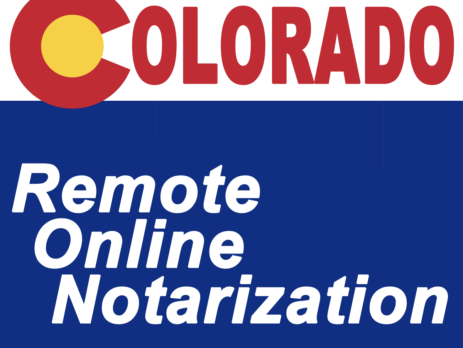Colorado Remote Online Notarization
Update 4/1/2020: The Colorado SOS office confirmed that there has been no change to the amount Colorado notaries can charge for a remote online notarization. This makes RON cost-prohibitive in most instances. We will update as we get more information. Colorado has adopted a temporary rule to allow Remote Online Notarization (RON) as a response to Corona Virus (COVID-19) and quarantine and social distancing recommendations at the state and federal level. Below is the new rule put out by the Colorado Secretary of State Notary Division: As temporarily adopted and effective 3/30/2020 Rule 5. Remote Notarization 5.1 Definitions As used in these Rules, unless stated otherwise: 5.1.1 “Audio-video communication” means communication by which an individual is able to see, hear, and communicate with a remotely located...








